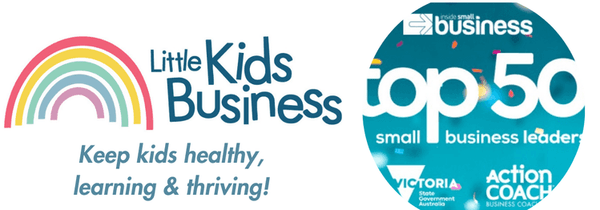As a parent, your role is to bring up a happy, resilient human being who is prepared to go into the world and live an adult life and while parents realise this from the teen years up, many don’t realise that building this resilience starts from a very young age.
Parents role should be to always acknowledge their child’s thoughts and anxieties and make realistic, positive promises to help them navigate all situations.
Many parents including COLLEEN WILDENHAUS, who is the mother of a 13-year-old girl suffering from severe anxiety and OCD admits that she can now clearly see that she was enabling he daughters anxiety, although, at the time, she believed that she was loving and protecting her daughter. In hindsight, Colleen can see that she was in fact, amplifying and reinforcing the anxiety.
Do you need more information about the importance of empowering children with anxiety?
As parents, we never want to see our kids in pain or distress. Add a disability to the mix of everyday parental worries, and we have entered a whole new dimension! Enabling parents to feel that they should remove as many uncomfortable and unhappy situations from their child’s path. This action is the very catalyst and parents must learn why they need to stop enabling a child with anxiety and gain the mental toolbox to empower a child.
How do you empower a Child with Anxiety?
I essence, by enabling children, you are giving power to the anxiety that is controlling your lives. Any parenting decision or behaviour that makes it easier for our child to continue down the path of fear and avoidance is enabling. This style of parenting is often about the parent making themselves feel better, however in truth, to overcome Anxiety you must place both your child and yourself in an uncomfortable position.
Empowerment teaches your anxious child that
- We see and hear their fear. Be sure to verbalise the recognition and show compassion for the way they are feeling.
- That we are here to work through this together.
Examples of the first Anxiety you must help your child to overcome
- Sleeping on their own. As a parent, I understand that co-sleeping is a controversial subject. If my child is unwell, I am by their side however as the SuperNanny says “if you are co-sleeping, you have to ask yourself if it is to soothe your own emotions”. If so, you are missing an important start of resilience training which both you and your child desperately need.
The Drawbacks of Co-sleeping include
- Your kids may develop a sleep crutch which 100% revolves around you.
- Your kids may display anxious behaviour.
- One bedtime doesn’t fit all.
- Your sleep quality may suffer.
- Your child sleep quality may suffer and we all know what a tired child is like.
- Your relationship may suffer.
- It increases the risk of SIDS and suffocation.
- Anxiety may first play a role in daycare drop off. You small child may cry when you have to leave and all too often the teacher will ask you to leave as dragging it out gives hope that you may take them with you. I know my 2 years old was very upset and I will admit, I cried when I got to the car, however, the daycare provider called me 15 minutes later to advise me that he was happy and playing with some blocks with his teacher. At that moment I began to learn an important resilience lesson myself and teach my son the resilience he needs for when Mummy is not close.
- Going to School may also be Anxious for some children, however, it is the above situation all over again and dragging out your goodbye will do more damage than good. If the next morning, your child says they do not wish to go, they are testing you and it’s an important moment ( extremely important ) if you give them a day at home within the first week of starting school, you have just taught your child that school is negotiable. I get it, home is such a safe place, as is Mum, however, getting an education is paramount. (If your child is having bullying issues, please seek expert counselling on how to deal with your exact situation)
By teaching resilience and providing coping strategies, you will ultimately build confidence.
Parents of all children must make decisions on raising children to be confident, independent adults. There will be moments when your child will want and avoid situations or tasks that they dislike and at this time, you need to empower your child by allowing them to realise their fear is unfounded. Rather than enabling them and prooving that you are the puppet which they are controlling with their strings.
In the real world of child anxiety, daily life is a game of “pick your battles” a child’s lack of sleep may make the entire day feel like you have to walk on eggshells. (Are they sleeping in their own bed?) Parents of anxious children must always be observing, using their best judgment, to find the most successful ways in which to empower anxious children.
Do not beat yourself up for the moments you enable, however, identify them and aim to change the outcome next time. After all, life must go on.
There may be times when you ask yourself “can I handle another meltdown right now and do I have the time to stick it out.”?
As a full time working Mother, I understand that there are places you just have to be at a particular time. This may mean that you have learned to plan extra time before leaving the house specifically for moments like this. It is never useless to fight these battles and there will be moments when you will need to remind yourself that the goal was a long-term success, not immediate results. Having this knowledge and mindset from the beginning will be a game-changer for your family
Do you sabotage your child by not allowing your child to take risks?
Your child wants to try out for the sports team but you do not let them because you worry they may not make the team and they will be disappointed. Your child does not handle disappoint or failure well, so you remove the possibility that they will not succeed in order to avoid the possibility of their disappointment.
Do you give in to complaints or demands?
Your child complains that she or he wants more time on technology even though their time is up. You let them stay on longer as you wish to avoid conflict and make them happy and avoid an argument or sadness on their part.
In this instance, it is important to have a big timer counting down so that it is very clear when their time is up. Give them a five-minute warning and never extend the time or you have just taught your child that, when pushed you will give in so this will encourage them to push all the more.
Not allowing a child to experience discomfort
Your child is worried about singing on stage with the music class at school so you let him or her stay home from school. You know they feel anxiety in these situations so allowing your child to skip the performance shields them from the anxiety.
You may have just rewarded bad behaviour which you are now encouraging. Talk them through this moment, provide them with the emotional tools to try something new. By avoiding this behaviour you may be taking away a wonderful moment which might make them feel empowered.
My son had a fear like this and I recall when he performed guitar at School Assembly he was terrified, however, I also recall the pure elation and self-pride he had with himself afterwards. I went to the performance and praised him to reinforce this feeling so that he will have the courage to try it again. This was a wonderful learning moment.
Cover up your chid’s errors
Your child took another kids book home from school- you allow them to keep the book rather than return it with an apology. You worry that your child will be embarrassed by his decision to take a book so you do not enforce an apology.
Let’s get something clear, a real apology needs to contain an acknowledgement that something wrong was done. It is important that your child is not taught to say a robot-like SORRY. It’s important that they understand, with your guidance that they would not like someone to take their books without asking and together you can create a plan to return the book with an honest apology.
Protect from natural consequences
Your child did not remember to complete his or her homework and she is anxious that the teacher will be mad. You email the teacher and take the blame for the incomplete homework.
If you think that you are the first parent to do that, then you are sadly mistaken and the teacher just saw through your email. It is better to gain the teachers’ respect and acknowledge that the homework was incomplete however you will do it tonight. If you need to be by their side while they say this, by all means however do not cover up your child’s shortcomings. After all, when they enter the workforce later in life, you will not be by their side and everything you do now is perfecting the adult they will become tomorrow.
Teaching your child to manage anxiety when it arises
By helping your child gain the knowledge and understanding of anxiety and how to manage the thoughts and feelings, you are empowering them to go through life with the confidence they can handle whatever situation may arise.
Help them learn to talk back to the anxiety, use positive affirmations cards to create positive reminders to carry with them, or give access to The Calm App when they need time to re-focus.
As shown, enabling leads to avoidance of anxiety, which is not helpful for anyone.
Empowering a child leads to anxiety management, resilience, flexibility, all tools needed in order to live a happy, successful life.
Parenting is hard. Parenting an anxious child is harder. Be kind to yourself, knowing you will make mistakes, but know you have the tools and knowledge to better empower your child.



